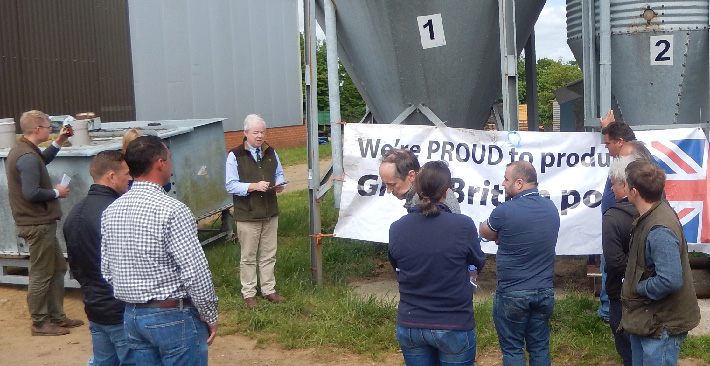Although pig prices are still generally in negative territory, for once it is good to be able to report some positive news on the price front with the influential German producer price moving up by 4 Euro cents after standing still for the last 18 weeks and is now quoted at €1.40 but is still only equivalent to 122.43p in our money.
Unfortunately, the SPP is continuing to slide and dropped another 0.56p this week to 138.15p but perhaps there may be signs of its long running decline from 152.95p last July bottoming out in the weeks ahead?
Weekly contribution prices have generally tended to stand on between 125p – 129p but are still well adrift of the SPP. Spot buyers were slightly more active in the market today although the general comment is that the fresh meat trade remains “fickle” with reports of prices around the 130p mark.
Although the value of the Euro has dropped slightly trading on Friday worth 87.45p compared with 87.78p a week earlier, cull sow prices took a useful upward step and are now on the top side of 60p with rises of around 4p/kg with most sows traded in the 60p-63p range, but still a fair way below their value of 72p a year ago.
Not much to report on the weaner front other than the fact that supplies are starting to reduce and one or two more buyers cautiously dipping their toe into this market hopefully further price recoveries may be on the cards?
The latest AHDB weaner price published a week ago at £43.37/head for 30kg with no quotation this week but 7kg values have perked up to the tune of £2.59/head to £39.29/head.
If further signs emerge of a slackening in the number of weaners coming forwards and we see a partial recovery in finished pig prices this could help to restore finishers confidence which is still fragile to say the least.
Feed ingredient prices are starting to reflect slightly easier trends with London feed wheat quoted at £169.20 for March, £171 for May and those prepared to look at longer months November at £151.50 is slightly more attractive than it has been.
As far as UK protein prices are concerned, 48% Brazilian soya meal continues to ease, dropping another £5/t to £301/t although 34% rape meal ex Kent is a shade firmer at £209/t.
More straws to clutch at in the weeks ahead with lower feed wheat volumes being exported which may help to keep a lid on prices providing there are no weather or currency related shocks along the way.
And finally, as far as the “B” word is concerned and with fears that a No Deal situation could cause havoc the NPA are underlining the fact to Government that we have to avoid an unequal and damaging Brexit tariff regime where UK exporters could have to face EU tariffs in full but Liam Fox’s recently announcement as Trade Secretary that the UK is considering a regime of no or low tariffs on agricultural food imports to try and keep food prices under control (and the electorate on side) could drive a coach and horses through the whole industry and would be the worst of all worlds.




